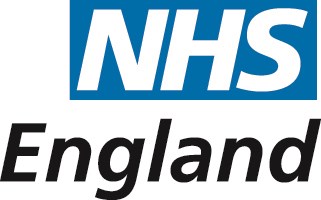Stephen Eames reflects on the journey of North Cumbria University Hospitals Trust from being in special measures to leading a thriving integrated care system

I joined North Cumbria University Hospitals Trust as chief executive in January 2016. Our hospitals were in special measures, our system struggling with crippling financial deficits and a workforce challenge was undermining services.
In association with

The government had intervened naming us as one of the three worst performing areas of England and we joined the Success Regime programme. This forced everyone around the table to look at our problems in a collaborative way.
Looking back, we were in our organisational tribes, concerned about our own performance and regulation in a way we simply don’t see here anymore. Nothing is one organisation’s problem – everything is owned by us all, and it is that which is making the difference in north Cumbria.
Have we changed hearts and minds? I think we’ve changed some.
Have we brought our staff with us? Some are not just with us but leading the changes on the ground.
Looking back, we were in our organisational tribes, concerned about our own performance and regulation in a way we simply don’t see here anymore
Have we brought our community with us? In places, we have some of the most informed members of the public in the UK on the challenges and opportunities facing the NHS in 2019.
But the reality is that some haven’t moved at all, and we need to keep working to engage and demonstrate improvement before those staff and members of the public feel the optimism shared by our leadership.
Success factors
So what has made a difference in Cumbria?
It helped that as well as leading the acute trust, I was appointed as chief executive of our community provider Cumbria Partnership Foundation Trust.
We are absolutely focused on primary care being a key part of our integrated care system and we need to build around our general practices to boost and sustain these vital services.
We have actively invested in our community teams. We have established eight integrated care communities led by a GP, a community professional and social care lead.
At the moment, these ICCs are focusing on our elderly, frail population pulling people out of hospital and enabling more care to be delivered closer to home, keeping people independent for longer and reducing pressures on hospital beds.
Our next focus will be on improving primary care mental health services.
Complex patients visiting their GP with conditions and queries that may need specialist guidance can now be more easily managed within primary care with the introduction of Advice and Guidance.This service links primary care directly with specialists in a secure communication where responses are guaranteed within days, preventing unnecessary outpatient referrals.
We are serious about working with our community and third sector and are developing co-production as the way we do service development.
We have learned that being clear about scope and a commitment to ongoing conversations can change the communication from confrontational to collaborative. We have worked together to develop a Co-production Toolkit to help our staff and our community make this effective. If you are changing services, our experience may help you so please take a look.
Nothing is one organisation’s problem – everything is owned by us all, and it is that which is making the difference in north Cumbria
We have also funded a health partnerships officer to build links with the third sector. Clare is working with our ICCs to make sure we are building meaningful relationships, and she sits on our System Leadership Board alongside Healthwatch Cumbria to make sure we are challenged to put people at the heart of our decision making.
In some ways, the nature of our footprint – one acute trust, one community trust and one CCG working with one county council – means we should be able to live and breathe integration more quickly than other areas.
In reality, our problems have held back our ability to make the kind of changes we look back and see were necessary.
How could we have done it better? We should have been more focused on putting our staff in the driving seat, rather than hoping they would jump in the back seat.
What should we have avoided? The business of running services will take all of your time if you let it, and we sometimes lost energy and progress when operational issues took over.
What will we do more of? We are developing shared values to guide how we work with each other, which will help us work together more effectively. We have to keep talking, sharing and demonstrating that we are doing the right thing and it is making a difference.
We’ll really know we are succeeding when we see measurable improvements in the health and wellbeing of our communities… and our staff and community ask for reassurance we won’t lose what we are starting to achieve!




























5 Readers' comments